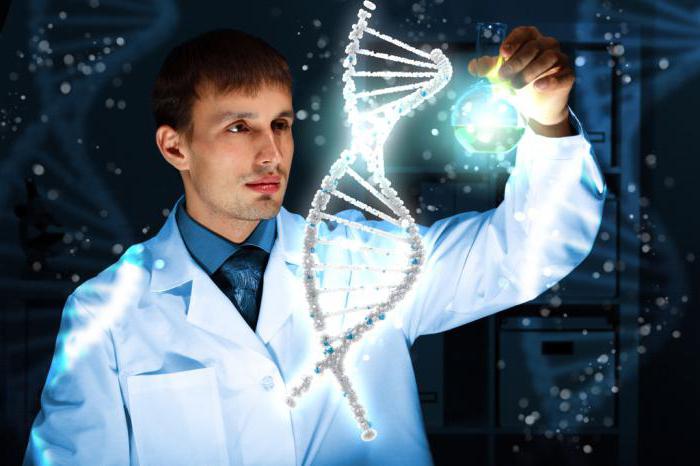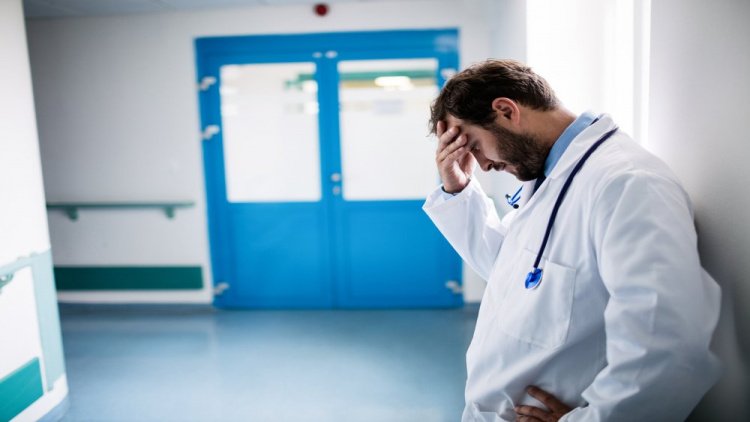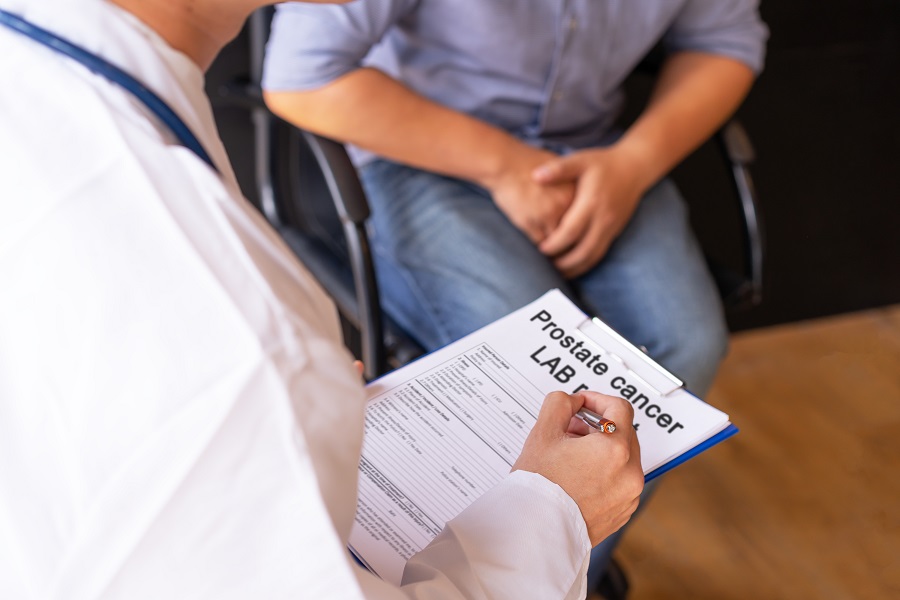The field of activity of an oral surgeon is narrower than that of a dentist. They deal with the diagnosis and treatment of diseases of the jaw, neck and face. These problems include:

- Occupation: medicine.
- How I became a doctor
- I was admitted to medical school at the last minute.
- I graduated as a neurologist.
- Common Specialties
- geneticist
- House won't go to jail for this
- Resuscitator, Kaluga district
- We are trapped and there is no way out.
- District therapist, Ivanovo
- Opinions of other patients about the doctor
- The clinic where the doctor works
- Andrei Gorlanov – an intensive care doctor from God
- Mikhail Sukhanov: thousands of lives saved
- implantologist
- The orthodontist at
- pediatric surgeon.
- transplant surgeon.
- What does the general practitioner do?
- What does the family doctor treat?
- urologist
- andrologist
Occupation: medicine.
chemistry and biology. If you are applying to study medicine, a good knowledge of biology and chemistry is particularly important. It's better if you're really interested in these subjects and not just cramming them. This makes it easier for you to pass the USE and the additional entrance exams that some medical schools offer. During the first year of study, you will continue to study these subjects, but in greater depth.
English language. Also, be sure to learn English. The latest articles about important medical discoveries are published in English first. You can start practicing and reading material from PubMed and Cochrane, where the latest research is published, while still at school. These websites are aimed at a professional audience with a medical background, but also publish journalistic articles that can be understood by students with an intermediate level. You should keep in mind that modern science advances very quickly. The research you read about in your freshman year may be out of date by the time you graduate.
How I became a doctor
I was admitted to medical school at the last minute.
I was born and raised in Penza and graduated from high school with a gold medal. I wanted to study biology and chemistry and become a teacher for these subjects. But when my mother and I went to bring the papers to study biology, I realized that what I really wanted to do was study medicine. At school I had thought about it more than once, but no one in my family worked in this field, and it seemed to me that without connections I would not be able to access it.
At that time, the admissions committee of the Samara State Medical University, which was across the street, came to our city. I applied for admission to the pediatric department, took a chemistry exam as my entrance exam, got an A, and was accepted.
I graduated as a neurologist.
I studied in the children's hospital for six years. I spent two more years at the Nizhny Novgorod State Medical Academy, specializing as a neurologist. Actually, I originally wanted to be a pathologist. But besides my main studies, I learned a lot in the Student Scientific Society, which organizes study circles for different disciplines, and that helped me to make the right choice. In the study circles I looked at different areas of medicine, met experienced professionals and thanks to their advice I decided on a specialization that really suits me. These courses added an extra burden to my studies, but I would highly recommend them to all medical students - such a development opportunity is not to be missed.
Then I received an offer to become a neurophysiologist in a private clinic. A neurophysiologist is a medical analyst who examines patients using various medical instruments, collecting and analyzing data to make or clarify a diagnosis.
I have taken an additional course in video EG monitoring. This is an examination of brain activity that lasts one to two days. It's most commonly prescribed to rule out or confirm epilepsy, but also in people who have already been diagnosed - to see the dynamics, capture the seizure, understand how it's happening and what area of the brain it's coming from comes. The patient is in a room where an electroencephalogram is performed and a video recording is made at the same time.
Common Specialties
The main specialties of doctors are known to everyone from childhood. If you register your child for kindergarten or school, you have to go to different doctors - this is how you get to know the different medical specialties. Below is a list of popular medical specialties. The list is as follows:
- family doctor (general practitioner). So-called family medicine is being practiced more and more frequently. If you have any suspicions about your health, it is therefore advisable to consult a general practitioner or family doctor first. He will listen to your complaints and make an initial diagnosis on this basis. He will then refer you for examinations and, if necessary, recommend a specialist.
- An ophthalmologist diagnoses and treats diseases of the eye.
- The ENT doctor is colloquially referred to as an 'ear, nose and throat doctor', since these organs are treated by this specialist.
- The dentist deals with diseases of the mouth and teeth.
- The gynecologist specializes in diseases of the female genital system. The dual designation 'gynaecologist/obstetrician' is not uncommon. – Such a specialist not only treats the woman, but can also 'manage' the pregnancy and deliver the child.
- A mammologist is also an all-female doctor - he diagnoses and treats diseases of the mammary glands.
- A neurologist helps with headaches, migraines, radiculitis, herniated discs, osteochondrosis, pinched nerves, insomnia and other diseases related to the human nervous system.
- The allergist diagnoses allergic reactions and helps to eliminate them.
- The cardiologist diagnoses and treats diseases of the cardiovascular system.
- A gastroenterologist should be consulted for problems with the digestive system.
- Dermatologist and venereologist. These medical specialties deal with the treatment of skin diseases. The difference between them is that patients diagnosed with an STD should go to a venereologist.
- A urologist deals with diseases of the urinary tract, including kidney disease.
- An andrologist is a male doctor who helps men deal with sensitive issues.
- A surgeon is a doctor who performs surgical procedures.
- A traumatologist will help with injuries of various origins.
geneticist
Genetics has occupied an important place in the development of medical science in general. Today it is impossible to imagine a modern clinic without a geneticist. True, such a doctor does not cure anything, but the results of the work of this specialist directly affect the life and health of the patient. The geneticist studies heredity and identifies congenital diseases associated with chromosomal abnormalities.
This specialization is primarily in demand in diagnostic and perinatal centers. A geneticist can detect incurable chromosomal disorders in the fetus at an early stage of pregnancy and calculate the potential risk of such complications when planning conception. The profession is currently promising, as the field of genetics is developing rapidly and is gradually being introduced into various fields of medical science.

House won't go to jail for this

Resuscitator, Kaluga district
We work in ways we wouldn't wish on our enemies. You speak of professional burnout among doctors, of early mortality among intensive care physicians. They say that this is all a result of stress at work. That's right. But at the same time, the system contributes to this stress. If the patient can't be saved, that's unfortunate, but if he can and then has to answer for it as if it were a crime, the doctor's decision is 99.99 percent in favor of his safety. We are human too and we don't want to go to the prosecutor's office every month because we 'have taken the Hippocratic Oath'.
Here is a very simple example: An elderly patient requires closed heart massage. The norm for deflection of the chest to start the heart is 5 cm. In elderly patients, such deformation is highly likely to cause rib fractures and can even damage the lungs. When I started my work almost 30 years ago, broken ribs in indirect massage were tacitly taken as an indicator of the quality of the procedure. Resuscitation is performed on a person who is already dying, on the verge, and it will not get any worse.
And now that fracture is the basis of a lawsuit for 'providing services contrary to safety requirements'. In other words, I have to do this resuscitation with gentle chest pressure to avoid breaking anything. The patient's chance of survival in this case tends towards zero, but there will be no 'iatrogenic crime'.
You have to work with today's realities. This means that for the doctor the interests of the patient are not in the foreground, but instructions, documents, statistics, paperwork, which, by the way, take up a lot of time. Ordinary patients and family members expect that in the event of a conflict between law and morals, the doctor will make personal and legal concessions for the benefit of the patient. like dr House he will argue with everyone, take charge and kick down the doors of the house.
We are trapped and there is no way out.

District therapist, Ivanovo
The embezzlement that everyone now has in their medical records is our reality. We have wild plans, I have to make almost 300 visits a month. No plan - no incentive payment. And this is not for us, but for the polyclinic.
In addition, I only have 10 minutes per patient and visit. What can I do during this time, say hello and issue a certificate? And if the case is ambiguous or the patient is serious, these notes allow me to save another 10 minutes for the history and examination.
And one more thing: in our region there is a presidential decree that the salaries of doctors should be double the average salary in the region. But how can this be achieved? So we have an unspoken directive for our bosses - more money, but don't get caught. If you get caught, it's your own fault. So we get records of missed appointments, referrals for vaccinations, an increased number of district doctors 'taking' patients from other areas.
Formally we have 'suggestions' and 'self-payers', informally we have visits. For example, without the required number of visits, I will not complete the plan. If I don't fill out the plan, as a polyclinic we will have less capacity, we will not have enough reagents for basic tests for patients. We are practically trapped and there is no way out.
Opinions of other patients about the doctor
The opinions and recommendations of other patients are one of the most reliable sources of information about a doctor. However, in order for 'Other People's Opinions' to be a useful search tool for you, there are three important points to keep in mind.
First, the more reviews there are, the more objective they are overall. Second, a doctor's assessment is just a dry assessment; You should read the review yourself to understand its value. Third, be skeptical of both praise and criticism of a doctor. Try to separate the content of the review from the storm of emotions.
The clinic where the doctor works
If the doctor is quite suitable for you, then the clinic where he works plays a secondary role. However, this criterion can be decisive when you have to choose between several specialists of the same level.
In addition, the level of the clinic matters if you are facing hospitalization or complex treatment. In this case, it makes sense to pay attention to reviews about the level of service of the medical institution in question, whether there is an inpatient department there, and to find out about the equipment of the hospital.
Andrei Gorlanov – an intensive care doctor from God

Emergency doctor Andrei Gorlanov from Tyumen saved eleven people in 2018. And all thanks to his perseverance. He managed to resuscitate six men and five women from clinical death. Incidentally, this is a local record for the past year. In November alone, the lives of two men were in the hands of a specialist. In the first case, a 58-year-old man suffering an acute myocardial infarction suffered cardiac arrest, while in the second case, it took 12 minutes of uninterrupted resuscitation to restart the heart of a 62-year-old patient.
Andrei Gorlanov himself attributes successful resuscitation to his team's cohesion and ability to quickly make the right decisions in emergency situations. In his opinion, a positive outcome depends largely on how quickly the person or their loved ones seek help from paramedics and whether the victim receives first aid before the ambulance arrives.
Mikhail Sukhanov: thousands of lives saved
Mikhail Sukhanov, Chief Physician at the Berezniki Regional Hospital named after academician Wagner, is a gifted cardiac surgeon who has performed more than 4,000 cardiac surgeries in his practice. And around 1,000 of his patients are children of all ages. The doctor's youngest patient was an infant weighing 460 g and less than 20 cm tall. Not long ago, surgeon Kama operated on two infants who were born at 27 weeks and weighed 700 and 800g. The infants had a congenital heart defect and could not breathe on their own. The operation was carried out in Kirov. The operation was successful and after just two days the children were able to breathe without a ventilator.
According to the doctor, the earlier the problem is identified and the sooner it is fixed, the greater the chances of a healthy and long life for the child.
implantologist
A doctor who deals with the placement of implants. During the surgical procedure, artificial 'roots' are implanted in the jaw - titanium screws on which orthopedic constructions (bridges and crowns) are placed.
The tasks of the specialist include examination, diagnosis and advice.
- development of an implantation plan;
- Referral for exams, x-rays, and other tests;
- Prosthetics;
- Monitoring of implant healing.
The implantologist often works together with the general dentist, the prosthodontist, the hygienist and the dental technician.
The orthodontist at
The orthodontist deals with the misalignment of the teeth in the jaw and his job is to align the teeth to:
- to correct the bite;
- to ensure the further correct development of teeth in the jaw (in children whose teeth are forming straight);
- to ensure comfort when speaking, eating, etc.;
- to give the smile an aesthetic look.
Parents of young children who are concerned about 'abnormal' tooth growth are the most likely to consult an orthodontist. But adults can also need help. You can visit the specialist if you:
- large gaps of up to 6 mm between the teeth (gaps and diastome);
- your teeth are not evenly loaded;
- removal of a tooth has shifted the remaining teeth to the side of the missing tooth;
- Her mouth has become 'tight' due to irregular tooth growth.
An orthodontist can help close the gap between your teeth (diastema).
pediatric surgeon.
The pediatric surgeon is responsible for the implementation of Operations under anesthesia in fetuses, infants, children, prepubertal children and young adults. There are two specialties within this broad category: fetal surgery and neonatal surgery. As you can see, treating fetal abnormalities in the mother has nothing to do with removing a broken bone in an infant after a fall.
Eye surgeons deal with surgical correction of problems around the eyes. Some procedures (e.g. LASIK) are minimally invasive and aimed at correcting refractive errors, while others involve enucleation and evisceration of the entire eyeball, i.e. the complete removal of the eye. The surgical treatment of corneal problems and ocular oncology requires 1-2 years of specialization with a specialist.
transplant surgeon.
Transplantations are among the most important milestones in modern medicine.However, they do not come without risks. Many of them have an expiry date, which means that they only take effect after the patient has died. For example, the half-life of a kidney transplant is 19.3 years and that of a heart transplant is about 12 years.
Many things can go wrong during the transplant (bleeding, infection) or after it (mismatch, autoimmune reaction, etc.). Therefore, a team specialized in the medical art of introducing foreign tissue into an ailing patient is required.
What does the general practitioner do?
- anamnesis (gathering information about the patient's illness, examining complaints about the patient's condition, medical history);
- Application of objective methods of examination (examination of the patient, including percussion, auscultation of the lungs (auscultation) and palpation of the organs (palpation));
- Identification of specific examination methods (e.g. laboratory, radiology);
- recording the patient's diagnosis and treatment in the patient's medical record;
- Determination of indications for hospitalization (e.g. if surgery is required);
- Identification of risk factors for chronic diseases;
- granting sick leave;
- Prescribing necessary medicines, treatments and other therapeutic measures.
During the consultation, the healthcare provider will question the patient about their discomfort, ask about the reasons for previous visits to healthcare facilities, review the medical history (anamnesis), and conduct an examination. After the initial consultation, the healthcare provider will guide the patient through the necessary tests (e.g. blood and urine tests, cardiogram, blood pressure measurement). Based on the test results and after evaluating the tests and examinations, the healthcare provider prescribes treatment or, if necessary, refers the patient to a specialist (e.g., to an endocrinologist if diagnosing diabetes, to an oncologist if cancer is suspected).
What does the family doctor treat?
First and foremost, the general practitioner should be able to diagnose and treat infectious diseases (flu and acute respiratory infections, food poisoning, dysentery, whooping cough, measles, scarlet fever, chickenpox, mumps and others). In addition, the therapist should be able to diagnose and treat diseases of the cardiovascular, respiratory, digestive, urinary, endocrine, hematopoietic, and rheumatic systems. In these cases the therapist has a coordinating role (referring the patient to the appropriate specialist) and general control over the course of treatment, ie 'leading the patient'.
This article is for informational purposes and does not constitute scientific material or professional medical advice.
urologist
It is sometimes wrongly assumed that urologists are 'male doctors' and that they do not treat women. In fact, a number of diseases of the urogenital tract in both men and women are treated by urologists. Regardless of gender, the urologist is generally consulted for the treatment of:
- Bladder disorders (usually acute and chronic cystitis of various origins);
- kidney disease;
- urinary incontinence;
- urolithiasis.

Men are treated by a urologist if inflammation and abnormal development of the head of the penis (such as balanopostitis or phimosis) is identified. When men get sick with such a common disease as prostatitis, the first thing they should do is visit a urologist. Typically, prostatitis is characterized by:
Untreated prostatitis can progress to a chronic condition or lead to serious complications.
Urology as a branch of medicine is closely linked to many other disciplines:
Urologists and andrologists are also distinguished. Their area of expertise is broader as they treat ejaculation disorders in men. There are also oncourologists who deal with malignant tumors of the male genital tract. Within this subject area, a distinction is made between two further areas:
- pediatric urology (deals with the urogenital system of boys and adolescents);
- geriatric urology (deals with diseases of the genitourinary system and anomalies in men associated with age-related changes in the body).
All men over 40 are strongly recommended to see a reputable urologist and have a routine urological exam at least once a year.
While in the past urologists were considered narrow specialists, today their field of work is much broader. For example, a urologist is an andrologist and a gerontologist at the same time. Urologists are engaged in the study of menopause in men, which differs from a similar phenomenon in women and has many similarities.
andrologist
Unlike urologists, andrologists are more specialized as they only treat men. Andrologists have a wide range of expertise in various areas:
Andrologists treat both adult men and boys, as well as adolescents and the elderly. They examine all possible pathologies of the male genital system, as well as somatic diseases associated with severe endocrine disorders.
In medical practice one often encounters the specialization 'urologist andrologist'. This means that the specialist treats both inflammatory processes in the area of the male genital organs and other pathologies. These can be related to age-related changes, genital trauma and complications from infections.
Men should consult an andrologist for the following complaints and diseases
- Menopause. They are also known as androgen deficiencies and appear after a certain age (45 years and older). The production of the male sex hormone testosterone decreases. This is accompanied by a decrease in libido and erectile dysfunction;
- the syndrome of metabolic disorders. It is always associated with hormonal imbalance and serious metabolic disorders. Obesity, hypertension and diabetes lead to metabolic syndrome in men;
- Infertility. There are a number of childhood infections that cause them. Infertility can be caused by mumps, rubella, and measles. It can also occur when a man has not seen a doctor for a long time because of prostatitis or an infection of the urogenital tract. Sometimes a woman does not get pregnant as planned and mistakenly believes that she is infertile, but in this case both need to see a doctor. To confirm or rule out infertility, the man should definitely see an andrologist;
- Premature ejaculation and impotence. These phenomena are both physiological and psychological in nature. An experienced andrologist, after a series of tests, will determine whether there are psycho-emotional disorders and, if necessary, will refer the man to a sexologist or psychotherapist.
- What other names are there for doctors?.
- What an orthopedist treats and what symptoms to report.
- Orthopedics - what is that?.
- Who is the orthopedist?.
- What is an orthopedist?.
- What is the name of the orthopedist in the health center?.
- The leg of a healthy person.
- The socks on the big toe are torn.
